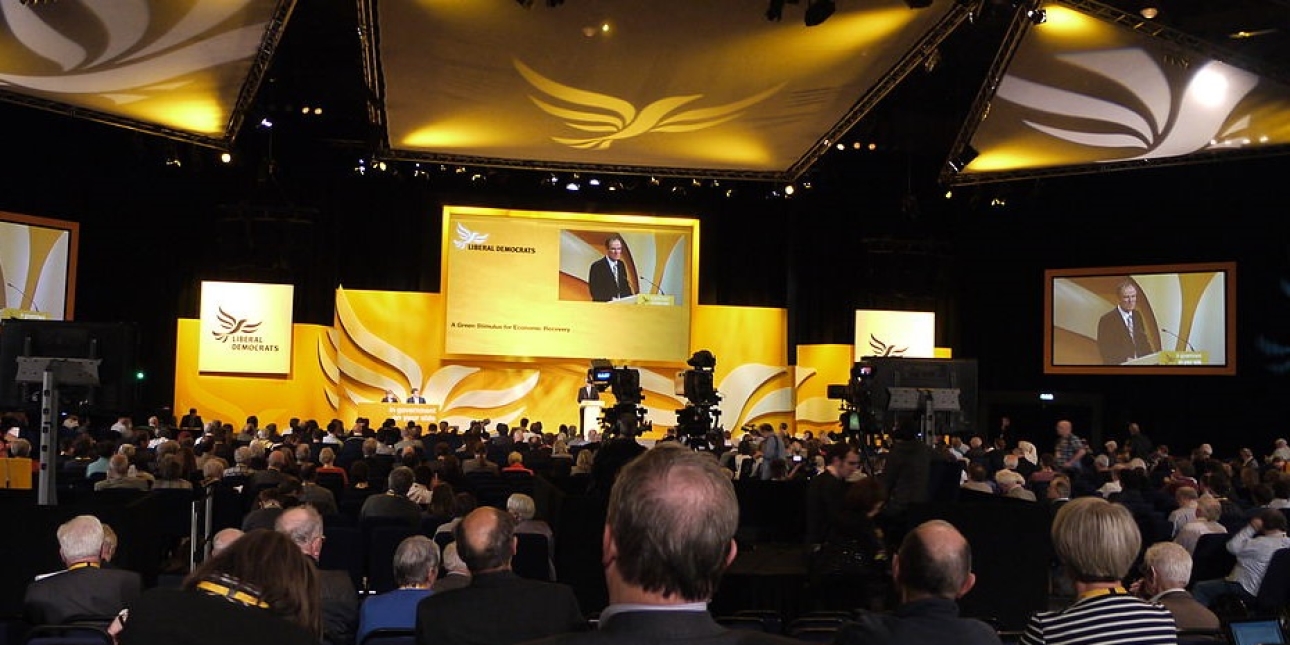PUBLIC RELATIONS
Friday 21st September 2018
Party Conferences and Communication part 1; the Liberal Democrats
Party political conferences are about more than a get together. They are opportunities for a party to communicate to a wider world as well as to some of its key publics. They can also still expect to gain considerable media coverage. That means each of the events in conference season provides opportunities and poses challenges for comms team.
I’ll be writing about the challenges, failures, successes and opportunities at each party conference this Autumn.
First up were the Liberal Democrats, with their event in Brighton. Given the party’s position on Brexit, this is a time during which its brand should be particularly clear. There is no fuzziness about the attitude to the EU at a time when there is considerable fuzziness elsewhere. And given the sizeable Remain vote at the referendum, and the ongoing People’s Vote campaigns, party members are puzzled at the relative lack of support given to this anti-Brexit party. This poses a dilemma for the party’s comms team. Is it best to keep hammering the line on the EU or is there a need to make the party more visible for other reasons. A linked challenge is that in news terms Lib Dem policies on other issues are not likely to make the grade editorially, unless a disagreement of some sort is also provided.
So, plenty for the communicators to ponder.
As a seasoned conference goer I see this event as an opportunity lost. The normal rule is that conferences shortly after General Elections do not have to have the discipline and focus of those close to polling day. They can deal with internal issues. They can be more introspective generally. Organisers know that there are more conferences to come before any crucial votes. However, the political arithmetic today and the declared intention of Labour to vote down the Government’s Brexit deal means that parties are already looking ahead to another possible snap election.
So what impression will have been created in voters’ minds by this one?
Firstly the new slogan. Political slogans (particularly the short ones needed for conference props) are actually very difficult to come up with. You are either far too general and meaningless or you risk alienating part of your audience. During the Coalition years, the Lib Dems used the slogan – In Government, On Your Side and in the past the party has used a number of phrases revolving around fairness or change. This time however it opted for “Demand Better”. Now this can work when words are added, Demand Better Housing, or Demand Better Jobs for example. But It is risky to put such a phrase next to people making speeches or posing for photographs. Many of us have had the experience of steering people away from Exit signs to avoid the obvious joke. The slogan also found itself the subject of debate among activists in the run up to conference as some felt it didn’t have much of the Liberal brand about it.
Secondly the choice of speakers. Certain people get to speak as of right. And some are called to speak in debates. However the choice of others for reserved podium speech slots can be a good way of communicating party’s values, future and so on. Layla Moran, the engaging new MP for Oxford West and Abingdon was a good choice for a slot. I am not so sure though about Gina Miller.
The Lib Dems do not always restrict their speakers to party members. There is a history of inviting outsiders (albeit not very many) to address conference. On the face of it the choice of Miller was a no-brainer. She is a high profile campaigner who is associated with fighting Brexit and challenging the Government. She is photogenic and aware of image (as her previous day’s photo opportunity on the white cliffs of Dover showed). However reaction to the speech has been mixed and there has been much journalistic comment on her failure to even be a member of the party. If the Liberal Democrats have rising stars to promote, was it wise to allocate some of that potential attention to someone who is not going to boost the party?
Finally the Leader’s speech. These are traditionally the grand finale to conference. Delegates expect some knock about, some attacks on opponents, some policy, some ambition. They want to be sent away enthused. Vince Cable is not a natural speaker in the mould of (for example) Tim Farron. But his speech did contain a lot of what the internal audience wanted. However, if we judge a speech by the provision of good, repeated soundbites it failed. And it failed because of a briefed-out line and then a mis- delivery. We were told that Vince would describe Brexiteers as having an “erotic spasm”. That itself set off debate within the party. He then mis-delivered the line making the mis-delivery a topic of comment. Of course this is no- where near as bad as Ed Miliband forgetting to mention the deficit in his 2014 speech, but small, challenger parties want journalists to be talking about something other than a mistake.
Of course the minute Cable said that he expected to leave the leadership before the next General Election, focus was inevitably thrown onto his future. This speaking error won’t have helped.
Paula Keaveney MCIPR is a senior lecturer in Public Relations and Politics at Edge Hill University. She is a regular conference attendee and a member of the Liberal Democrats.
Photo from Wikimedia Commons
